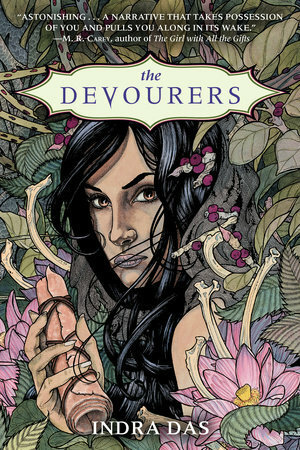#the devourers
Explore tagged Tumblr posts
Text


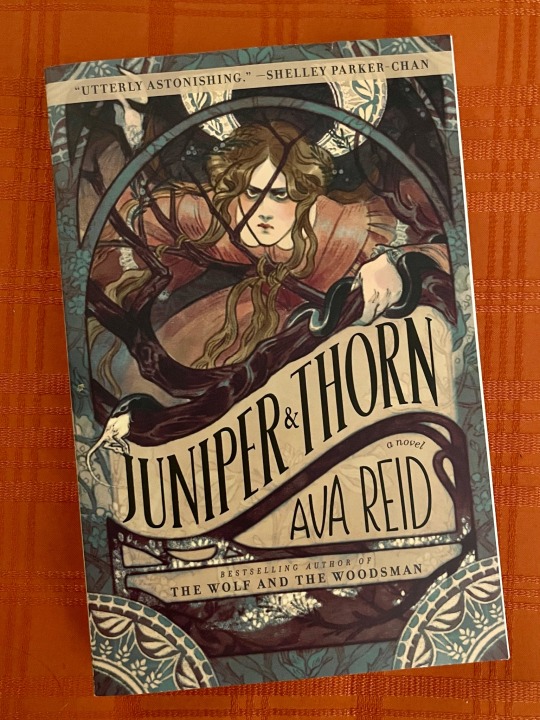

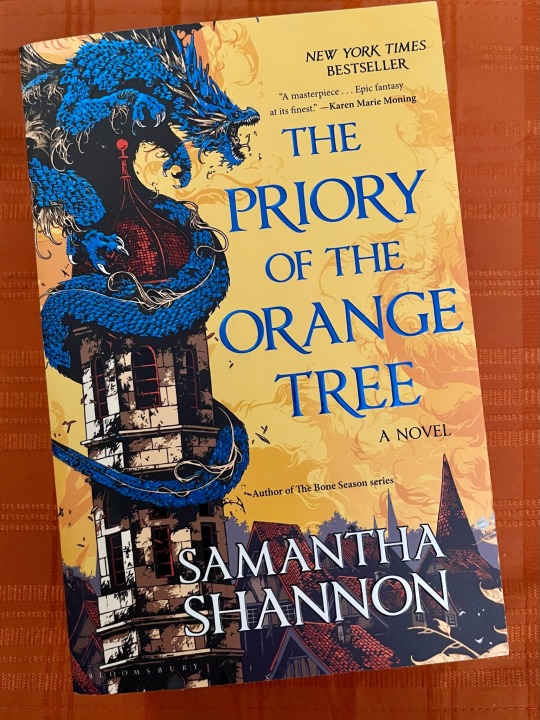
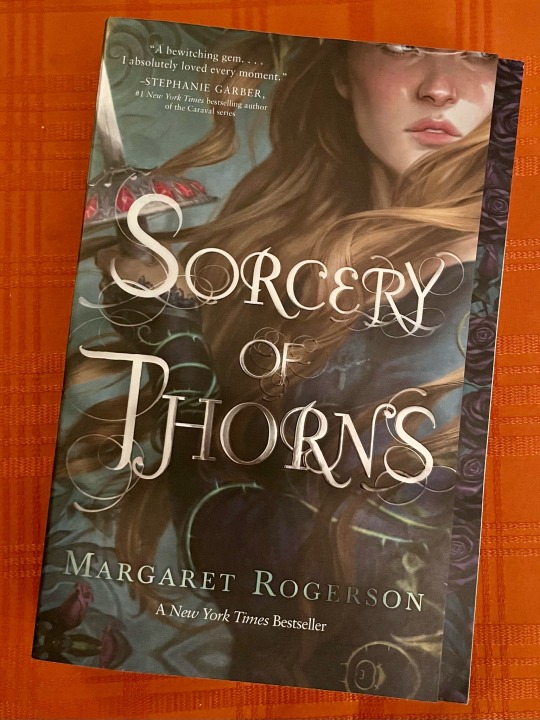
birthday book haul!
which of these should I read first?
#bookblr#booklr#book haul#sorcery of thorns#the priory of the orange tree#assistant to the villain#if we were villains#the devourers#juniper and thorn#iwwv#tpotot
451 notes
·
View notes
Text
2024 Book Review #9 – The Devourers by Indra Das
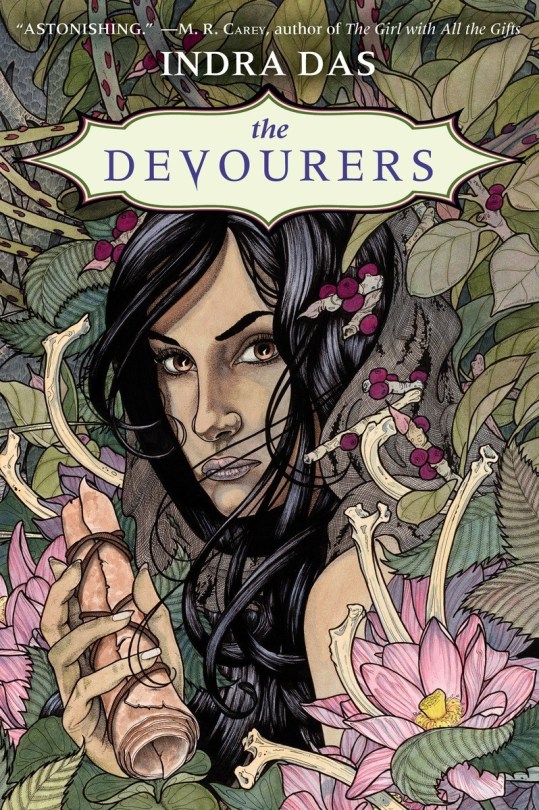
I was recommended this as an example of a contemporary work where werewolves are actually treated as monstrous and horrifying instead of either romance fodder or one interchangeable variety of supernatural in an urban fantasy kitchen sink. In one sense that was a blatant lie (the monsters are only werewolves in the vaguest sense), but in another one I care about much more it fit the bill perfectly. Funnily enough it basically is a romance (or at least, the overarching framing narrative is), but for once I’m not complaining about that. Excellent read, though does require a bit of a strong stomach.
The framing narrative follows Alok, a history professor in Kolkata whose approached by a mysterious stranger at a festival. The stranger identifies himself as a half-werewolf, an immortal man-eating shapechanger. In between being mysterious and menacing and flirting with Alok, he hires him to transcribe and digitize two historical werewolf manuscripts – journals etched into parchment made from human skin. Those journals are the meat of the narrative, and it rapidly becomes clear they are written by the stranger’s parents; first the ancient norse werewolf who had wandered all the way to the banks of the Yamuna, then the human woman he fell into something like love with and raped as she travels alongside one of his former packmates and hunts him down.
The framing device is the emotional heart of this, and incredibly well interwoven with the manuscript sections. It’s fundamentally a romance, though one somewhat interestingly devoid of real conflict or plot (well, from Alok’s perspective. There’s a whole emotional journey with him going from ‘future food’ to ‘romantic partner’, he just only gets small glimpses of it). There’s I think one real argument or point of conflict between the two of them across the entire book? And maybe one or two points besides that where Alok or their relationship encounters genuine difficulty or danger. Despite that, and despite (or perhaps because of) the ambiguous ending, it all just very much worked for me.
It’s also interesting – and the book does really call this out – that the whole plot is essentially arbitrary. The inciting incident is just a werewolf being angsty and lonesome, and the entire story and all its stakes are strictly interpersonal with nary an epochal revelation or looming existential doom to be seen. It is a sign of how much of my reading diet is genre fiction that this felt like a massive breath of fresh air, I think.
Speaking of love – the book is deeply and intensely preoccupied with the closeness of and overlaps between love and sex and pain and violation and consumption and death. Werewolves consume souls and memories as well as flesh, knowing and even becoming (for a time) those they hunt. This extends to each other as well – regeneration means mating and fighting to the death is an impossibly thin an frequently crossed line, and intimacy and memories are shared by literally allowing someone to take a bit out of you. Izrail kills and consumes both his mother and his father, and this is the only way he ever truly knows either of them. Both he and his father have fallen in love with whole strings of humans across the ages, and each been the ruin of all but one of them. This extends into the use of language as well – I didn’t take notes as I read, but the example that sticks in my mind was the description of one werewolf pressing a mush of chewed flesh into the mouth of another so he might heal as being ‘like a gentle kiss’.
It is just an intensely gory book in general, really. Or not even gory so much as carnal, in the older broader sense. There’s blood and viscera and sweat and sex and piss and shit and tallow made from human fat and game animals eaten bloody and raw. All of it seamlessly intermixed in one richly detailed and incredibly pungent sensory world the book conjures up for you.. This is taken to an extreme whenever the primordial god-monsters that are a shapeshifter’s second soul appears on screen, but even beyond that – like when I say you need a bit of strong stomach to enjoy the book, I really don’t’ just mean in terms of violence.
This ties in a bit with the lack of grand, world-shaking stakes I mentioned but – the book makes excellent use of its period piece sections to really sell this feeling of the weight of history and of being caught up in the wake of events larger than you can perceive. The 17th century sections really nail the sense of the past as its own living, breathing world full of richness and contradictions, rather than just a slate for the present’s psychodrama. Also it’s possibly the first book I’ve ever read which really mentioned the surprisingly widespread and violent history of werewolf hunts in Europe, which I appreciated.
The shapeshifters (werewolves, rakshassa, djinn, ghuls) themselves are absolutely great. Horrifying and disgusting and sublime, with exactly as much detail given as the story needs without succumbing to rpg splatbook syndrome. The idea of werewolves as things which are deliberately created through a(n incredibly violent and traumatizing) ritual process is one I don’t think I’ve seen before? It works here, anyway – though instead of a hereditary curse or contagious infection, it leaves shapeshifters feeling like one of those elite, elevated fraternities who put new inductees through a hell of physical, social and sexual violence for hazing and indoctrination purposes (the usual modern versions being military units, sports teams, and just actual fraternities). Which ties into all those themes of the fine line between love and violence, I suppose.
Or well, not technically fraternity – werewolves are all functionally genderfuild (can take a big nap and wake up looking like whoever they ate last) and while their second selves can fuck I’m not sure either human genders or, like, genital arrangements apply to them. But 3/4 of the werewolves who get any lines are one caricature or another of masculinity and this absolutely informs how the condition and culture are presented. So like, I’ll just go with it.
Anyway, great book! And ‘abuse regeneration by sewing dozens upon dozens of bones and trophies taken from prey into your skin’ is a great look for a werewolf’s human form.
76 notes
·
View notes
Text

7 notes
·
View notes
Text
Indra Das is he only recent werewolf writer I’ve found that makes werewolves freaky as fuck and I find that to be tragic. What happened to werewolves being monsters? I will not accept wolves but bigger. They must have nasty teeth and weird fur and warped claws. They should be too close to human and too close to wolf and something else that wreaks of nightmares.
#werewolf#werewolves#monsters#make them scary#make it weird#writing#fantasy#paranormal#books and reading#indra das#the devourers
20 notes
·
View notes
Text
alok:
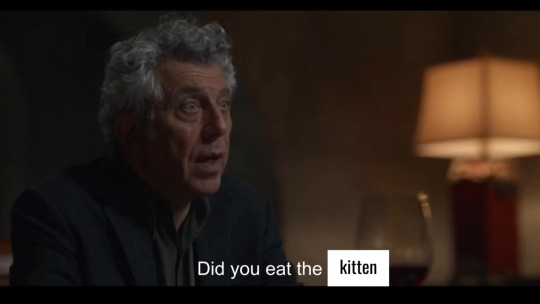
#the devourers#will never shut up about how if you like the tv show iwtv you may like the devourers…#indra das
12 notes
·
View notes
Text
The Devourers by Indra Das

On a cool evening in Kolkata, India, beneath a full moon, as the whirling rhythms of traveling musicians fill the night, college professor Alok encounters a mysterious stranger with a bizarre confession and an extraordinary story. Tantalized by the man’s unfinished tale, Alok will do anything to hear its completion. So Alok agrees, at the stranger’s behest, to transcribe a collection of battered notebooks, weathered parchments, and once-living skins.
From these documents spills the chronicle of a race of people at once more than human yet kin to beasts, ruled by instincts and desires blood-deep and ages-old. The tale features a rough wanderer in seventeenth-century Mughal India who finds himself irrevocably drawn to a defiant woman—and destined to be torn asunder by two clashing worlds. With every passing chapter of beauty and brutality, Alok’s interest in the stranger grows and evolves into something darker and more urgent.
Shifting dreamlike between present and past withintoxicating language, visceral action, compelling characters, and stark emotion, The Devourers offers a reading experience quite unlike any other novel.
17 notes
·
View notes
Text
Ngl The Devourers has me catching feelings about werewolves and I am a vampire lover to the core
6 notes
·
View notes
Text
feeling some type of way about cyrah and gevaudan again. will schedule my reread for 'the devourers' this year bc they keep haunting me
5 notes
·
View notes
Text
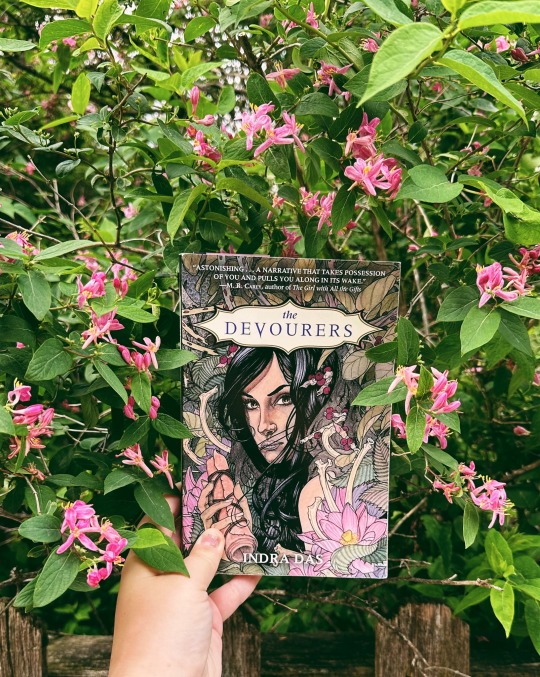
The Devourers by Indra Das is a richly written, artistic fantasy telling the story of shapeshifters who have lived in India since the Taj Mahal was first being built. A young professor named Alok meets a mysterious stranger who insists he's half-werewolf. He asks the professor to type up two manuscripts for him—manuscripts that tell the story of a human woman named Syrah who lived 200 years before them, a woman who became the object of a shapeshifter's deadly desire.
It's a book about greed, about a relentless, single-minded desire to violate and conquer. It is slow-paced yet difficult to put down, a slowly unspooling mystery, a mythological story that feels epic, historical, bloody, visceral. It's impressively new and feels very grounded in a sense of its own ancient folklore. It reminded me of NK Jemisin's talent for carving a world that feels convincingly, terrifyingly real and old.
I will mirror some reviewers' thoughts that at times the descriptions of bodily fluids could be a bit much. The amount of "piss" I understood, they're animals, there's a certain marking of territory. But there was so much of it. Part of me also wondered how necessary Fenrir's part to the book really was. The narrative picks up tremendous momentum once we begin Syrah's story, and I struggled to get a sense of what Fenrir really wanted. I almost wonder if it would have been better for us to get his journals within her portion of the narrative.
Still, I've been wanting to read this book for a long time, and wasn't disappointed. The explorations of trust, sex/physicality, gendered violence, and queerness, alongside an interpretation of werewolf as a being with two selves, two skins, was fascinating. I really enjoyed this read despite its difficult topics, and am so glad to have finally gotten to it.
Heavy content warnings for sexual assault, body horror. Also for homophobia, violence, physical abuse.
21 notes
·
View notes
Text
Spent some time making the silly little melody Sal plays when they're fighting Terrence into a little Hymn to reflect all of Sal's godly power and religious symbolism ✨
Original melody is by Steve Gabry, arranged by myself to make this silly little thing :> The link to the original little melody is right here.
2 notes
·
View notes
Note
6. go clothes shopping with, go to ikea with, go grocery shopping with
Devourers edition!! Cyrah, Alok, Izrail
OUGH. MY LOVES.
i'm trying to go with my gut for these answers but i would love if we just took the pack to ikea because i think i'd like to see Cyrah and Izrail go utterly feral inside the swedish house maze. i'm GOING to prioritize Cyrah here because i want to buy her an ikea shark plush and feed her the chocolate torte from the cafeteria, which i think she might like very much. i understand this means we're maybe bringing along the emotional support werewolf, which is fine, i think it's fun if we all test beds together and maybe steal a lil trinket from the basement kitchenwares section.
Alok for clothes shopping: nothing more fun than taking your trans friend out and helping them discover new styles and palettes that suit them. ideally we'd hit up some of my favorite SF thrift spots and then eat burritos and ice cream in Dolores Park.
Izrail for grocery shopping seems unhinged but also half the time i go into a store without a list i emerge with a dozen items that are useless for actual meals because they "sounded fun." case in point: the jar of lemon curd in my fridge. BUT a werewolf who eats people isn't gonna be picky so anything where i look at it after the fact and go "wtf" i can just pass on to him. also everyone would give us wide berth because Izrail would be doing the creepy predator stare and this is ideal because the thing i hate most about grocery shopping (besides the rising cost of basic food items) is that other people are there.
send me a number + three names!
7 notes
·
View notes
Text
This book is intensely fascinated by the closeness and connections between love and violence and sex and pain, but describing one werewolf biting a finger off a human hand and chewing it into mush before passing it into another (horribly injured, by him) werewolf's mouth like a baby bird so he'd swallow it and heal as 'like a gentle kiss', might just be the new peak of it.
30 notes
·
View notes
Text
Thought about the ending to The Devourers again

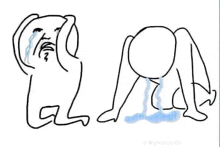

Hundreds dead thousands injured
9 notes
·
View notes
Note
> when's the last time you saw werewolves played straight as actually horrifying? Or even the primary/load-bearing supernatural element of something?
you should read The Devourers by Indra Das. first of all it is the above and second of all I actually just think you would like it
At a glance looks pretty interesting! Will toss on the TBR, thanks.
15 notes
·
View notes
